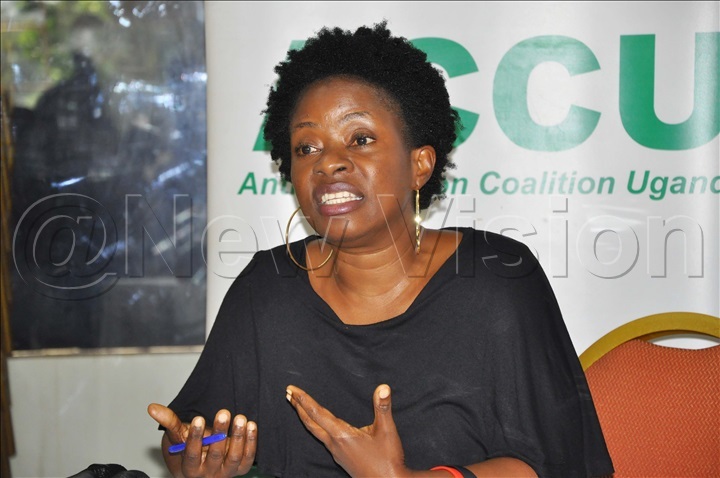CSOs want law to compel leaders, relatives to declare wealth
Nov 23, 2020
The organisations say it becomes hard for the government to trace and recover such assets, even where someone has been found guilty of embezzling public funds.

The Anti-Graft Civil Society Orgnisations (CSOs) have called on Government to introduce a provision within the Leadership Code Act, to compel leaders to declare their wealth and that of their children and spouses.
The organisations say it becomes hard for the government to trace and recover such assets, even where someone has been found guilty of embezzling public funds.
Addressing journalists to commemorate the International Anti-Corruption day at Fairway Hotel in Kampala, the Executive Director, Transparence International Uganda (TIU), Peter Wandera, said most of those who steal public funds register many of their assets in their spouses and children's names.
The event was organized by ActionAid International Uganda (AAIU) in partnership with TIU, Uganda Debt Network (UDN) and the Anti-Corruption Coalition Uganda (ACCU), supported by the Democratic Governance Facility (DGF).
Wandera noted that there is need to revisit the Leadership Code Act to reintroduce the clause which provides for the spouses and children of the various public officials and political leaders to declare their wealth.
"During the preparation of the bill and the previous Act, Parliament removed this clause. But we all know that many leaders accumulate wealth through fraudulent means or corruption; and register them in their spouses and children's names. With his clause in place, it will be easy to recover such assets obtained using proceeds from corruption," he said.

He added: "If we do a property census today, you might be surprised that some of the buildings you see are in the names of five-year-old children."
They urged government to tighten the existing legal and institutional framework to easily help in tracking and prosecuting the corrupt individuals in different government Ministries, Departments and Agencies (MDAs).
The program manager UDN, Christine Byiringiro, said despite of the legal and institutions framework in place, corruption remains at the peak.
The CSOs acknowledged government's efforts towards fighting the vice including; the establishing of strong legal framework, making reforms in management of public funds and improving communication and feedback mechanism, but stressed that much needs to be done to better results.
Byiringiro noted that even the National Development Plan (NDP III), identifies corruption as one of the key obstacle to country's development.
According to the East African Bribery Index (2017), positioned Uganda as the second most corrupt country in the East African region with excessive corruption in police and the judiciary.
The Global Financial Integrity Report 2018, indicates that Uganda loses at least $1bn annually in corruption related to tax evasion and money laundering.
The Global Perception Corruption Index 2019, placed Uganda 137th out of the 180 countries assessed.
The executive director, ACCU, Cissy Kagaba, said there is also need for a law to track election financing.
"We do not know where these candidates get money or who funds them," she noted.
They called for increased funding of the IG, Anti-Corruption Department of the Directorate of Public Prosecution, and other agencies, and introduce a comprehensive witness protection legal and institutional framework for enhanced protection of witnesses and informers in the context of investigation and prosecution of anti-corruption cases.
As part of the activities ahead of the commemoration on December 9, 2020, the CSOs have organized a series of events to provide a platform for citizens to engage duty bearers and provide evidence of transparency and accountability violations to the State and effects of corruption on public services in their different constituencies.
"We shall be holding national and regional Anti-Corruption Conventions and shall be recognizing outstanding members of society with awards. These will be nominated by the public in their areas and will be vetted by a vetting committee," Joy Namunoga, the Project Advocacy Officer-Governance and Social Accountability, AAIU explains.
She said citizens engagement in service is very vital to ensure the duty bearers deliver.
